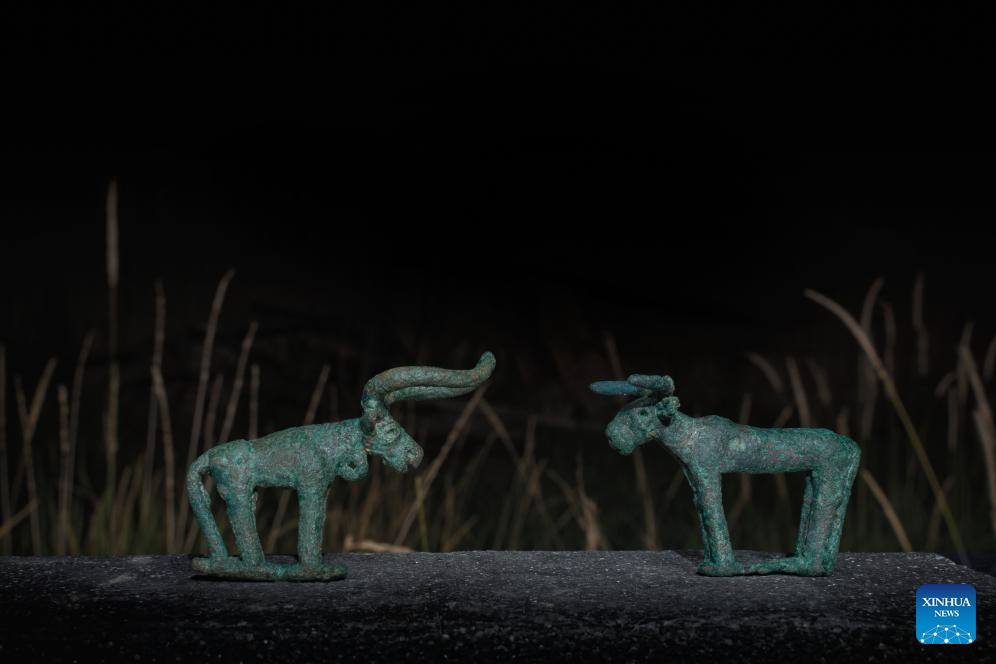


This undated photo provided by Qinghai provincial research academy of cultural heritage and archaeology shows bronzeware unearthed from the ruins located in Balong Township in Dulan County, northwest China's Qinghai Province. (Xinhua)
XINING, Aug. 28 (Xinhua) -- A total of 3,228 tombs have been found at the ruins dating back more than 3,000 years in the plateau province of Qinghai in northwest China, archaeologists said Monday.
The ruins, located in Balong Township in Dulan County, are believed to be a cluster that combined tombs and residences during the period between 1,500 BC and 1,000 BC.
A joint excavation by the provincial research academy of cultural heritage and archaeology and Northwest University was launched in 2021.
Du Wei, leader of the excavation project, said three graveyards covering a total area of 120,000 square meters have been discovered, and 52 tombs have been excavated so far.
Potteries, bronzeware, jadeware, braided fabrics, human bones, and remains of animals and plants were among the unearthed items, providing a lot of materials for the study of Nuomuhong culture, Du said.
Nuomuhong culture is a Bronze Age archaeological culture with Qinghai characteristics, mainly distributed in the Qaidam Basin and its surrounding areas.
Speaking at a meeting of experts on the ruins last week, Huo Wei, a professor at Sichuan University, said that the excavation has ascertained the long history of the Qaidam Basin and is significant for the research on the ancient civilization of the Qinghai-Tibet Plateau. ■
点击右上角![]() 微信好友
微信好友
 朋友圈
朋友圈

请使用浏览器分享功能进行分享
